Talk to a Registered Dietitian and use INSIDER20 for 20% off!
Talk to a real Dietitian for only $99: Schedule Now
This post contains links through which we may earn a small commission should you make a purchase from a brand. This in no way affects our ability to objectively critique the products and brands we review.
Evidence Based Research To fulfill our commitment to bringing our audience accurate and insightful content, our expert writers and medical reviewers rely on carefully curated research.
Read Our Editorial Policy
Given the number of research-supported natural laxatives known to nutrition scientists today, there’s no reason to “pharmaceuticalize” your approach to constipation relief if that isn’t your preference.
In fact, there are hundreds of seeds, herbs, pumpkins, various fruits, fermented foods (probiotics), and many, many more foods that act as natural laxatives for anyone looking to restore “regularity” as naturally as possible.
But you don’t want to memorize a laundry list of foods than we want to provide one, so this guide instead builds a foundational understanding of the causes/mechanisms behind constipation and the natural laxatives that work fast to address them.
It sounds a bit facetious, but it’s true: water is the ultimate laxative (and hey, the cheapest home remedy).
Water may not “cure” the source of the constipation in every case, but it certainly makes your bathroom trips easier.
Right behind water is dietary fiber, which is being continually and unfortunately elbowed out of frame in many parts of the world thanks to the popularity of processed foods—more on that here.
There’s a handful of nutrients (for example, magnesium with its osmotic action) shown to combat constipation, as well as probiotics like Bifidobacterium lactis proven by several studies to increase bowel movement frequency in constipated people.
Probiotics may not always be as acutely effective as other natural laxatives, but treating the 100 trillion bacteria lining your digestive tract well comes with a slew of added benefits in immunity, metabolism, and even mental health.
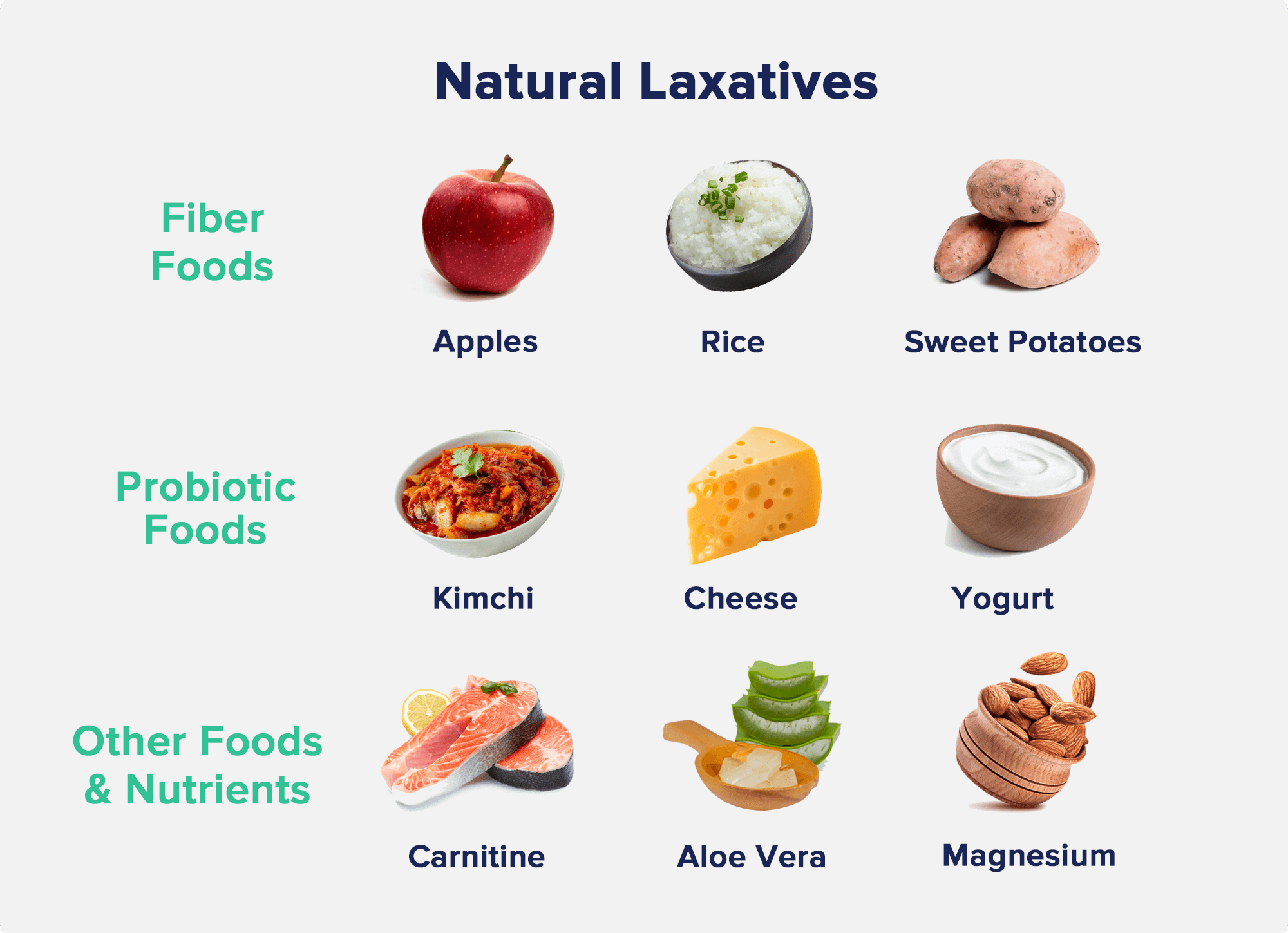
Roping all of these together, we arrive at a pretty huge list that might seem unrelated. Here is a sampling of some of the most effective natural laxatives, broken down by the above categories.
Fiber:
Probiotic foods (think fermented):
Other Foods/Nutrients:
This is just a small sampling of the hundreds of foods that can help relieve constipation, and wouldn’t you know it, many of them are fairly nutritious.
Of course, the best natural laxatives all produce the same result, but that doesn’t mean that the problem they address (constipation) always looks the same on a physiological level.
The following factors may act alone or in combination to partially or fully prevent your ability to have a bowel movement:
Two of the most common problems brought about by these factors (and others) when it comes to constipation include reduced stool weight and/or a lack of water content in the stool, which often go hand in hand.
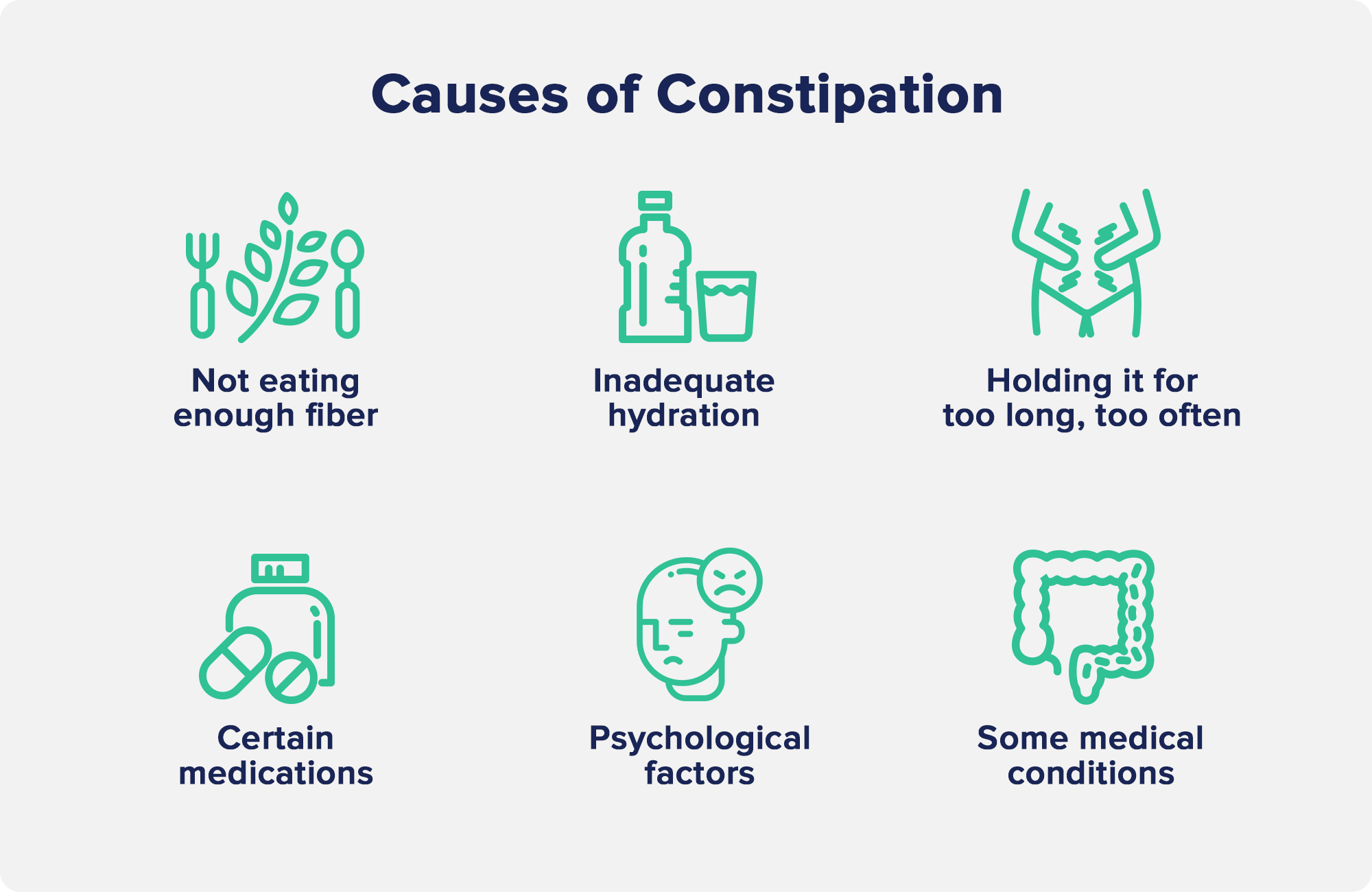
Constipation can also be caused or exacerbated by anal fissures, bowel obstructions, or problems with the nerves regulating peristalsis of the colon, but these are generally less common cases often associated with various medical conditions.
Because the insufficient stool weight and/or lack of water are so common among the many people who experience “idiopathic” (no known cause) constipation, the most widely used laxatives—natural or otherwise—usually seek to draw water into the stool and/or increase bulk of the stool with fiber.
That said, there are several nutrients that target the less common issues that cause constipation.
This fact sheet from the National Institutes of Health aptly summarizes the several classifications of laxatives, including, but not limited to:
Bulk-forming laxatives that enlarge the stool with foods that are high in fiber, like psyllium, bran, and so on. Garden of Life Super Seed is an excellent example of a fiber-rich supplement optimized for gut health, aided by probiotics as well.
Osmotics that attract water into the bowel, making the stool larger, smoother, and easier to pass.
Stimulants that activate groups of neurons regulating the peristalsis (toothpaste-squeezing motion) of the intestines. Senna leaves are a trusted natural laxative for those who require a stimulant to produce a laxative effect.
Chloride Channel Activators that can draw both water and chloride into the stool, which soften it.
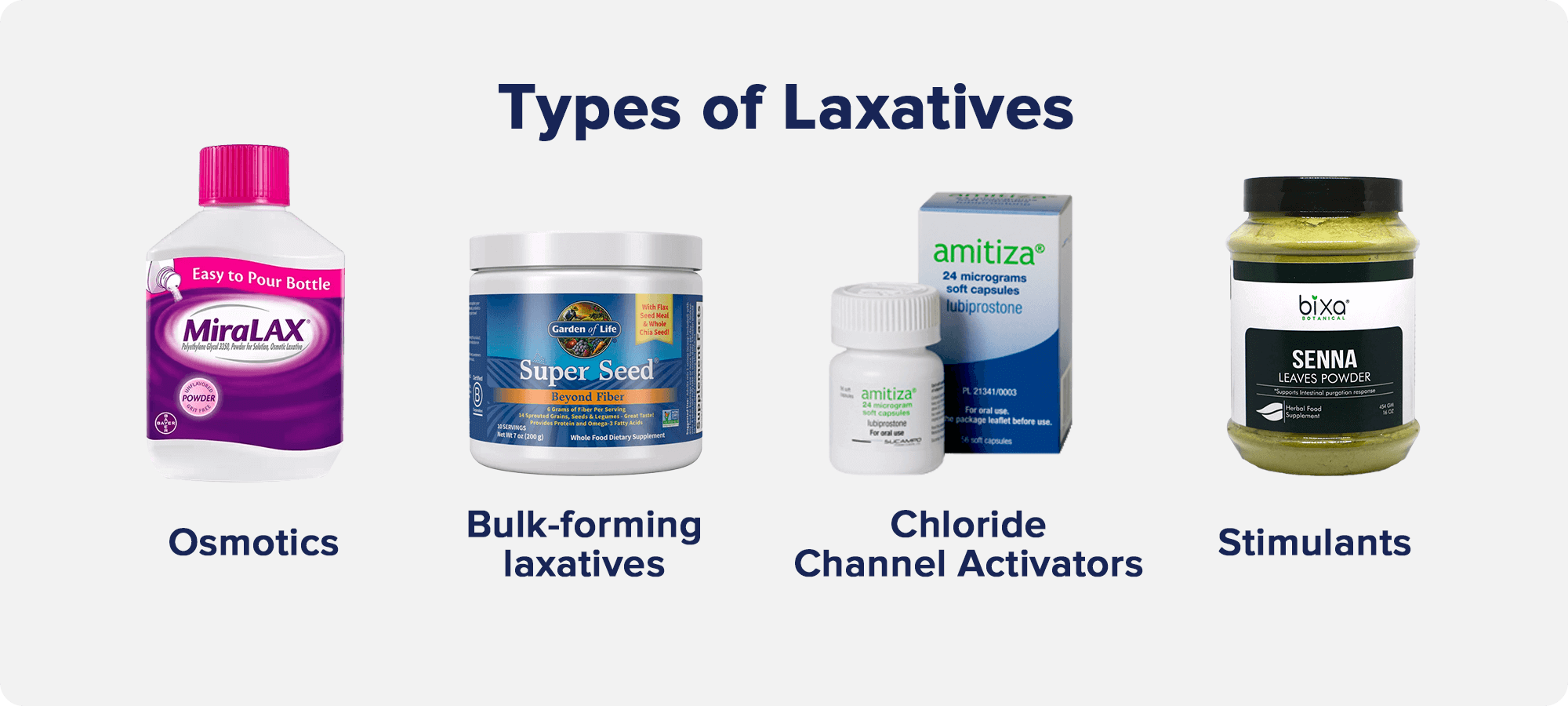
Unsurprisingly, our most repeated mantra applies to laxatives just as it applies to almost everything else: you can’t just sit back and let the supplement (or food, or drug) do all the work.
Even if you and/or your doctor do not suspect lifestyle factors as the primary cause of your constipation, making simple improvements to your daily routine can still improve how quickly you recover while preventing future occurrences.
Johns Hopkins has published a succinct, yet comprehensive breakdown of constipation prevention tips, which include the following lifestyle-related changes:
And that’s it! (Thought there would be more, didn’t you?)
Obviously, increasing your water and dietary fiber intake are key dietary practices for constipation prevention, but when it comes to lifestyle habits, keep moving and go when you have to go.
That said, anything that can have a negative impact on your GI motility and/or hydration level can indirectly cause constipation, with or without any comorbidities.
For example, habitually insufficient sleep, drug use, and other harmful lifestyle choices can cause digestive system issues that lead to constipation, though this might not take top priority given the other issues that come along with these habits.
Also, if your constipation results from irritable bowel syndrome, colon cancer, or another disease/disorder, these lifestyle modifications are less likely to completely resolve the problem, but that doesn’t mean they can’t decrease the frequency or intensity of constipation bouts.
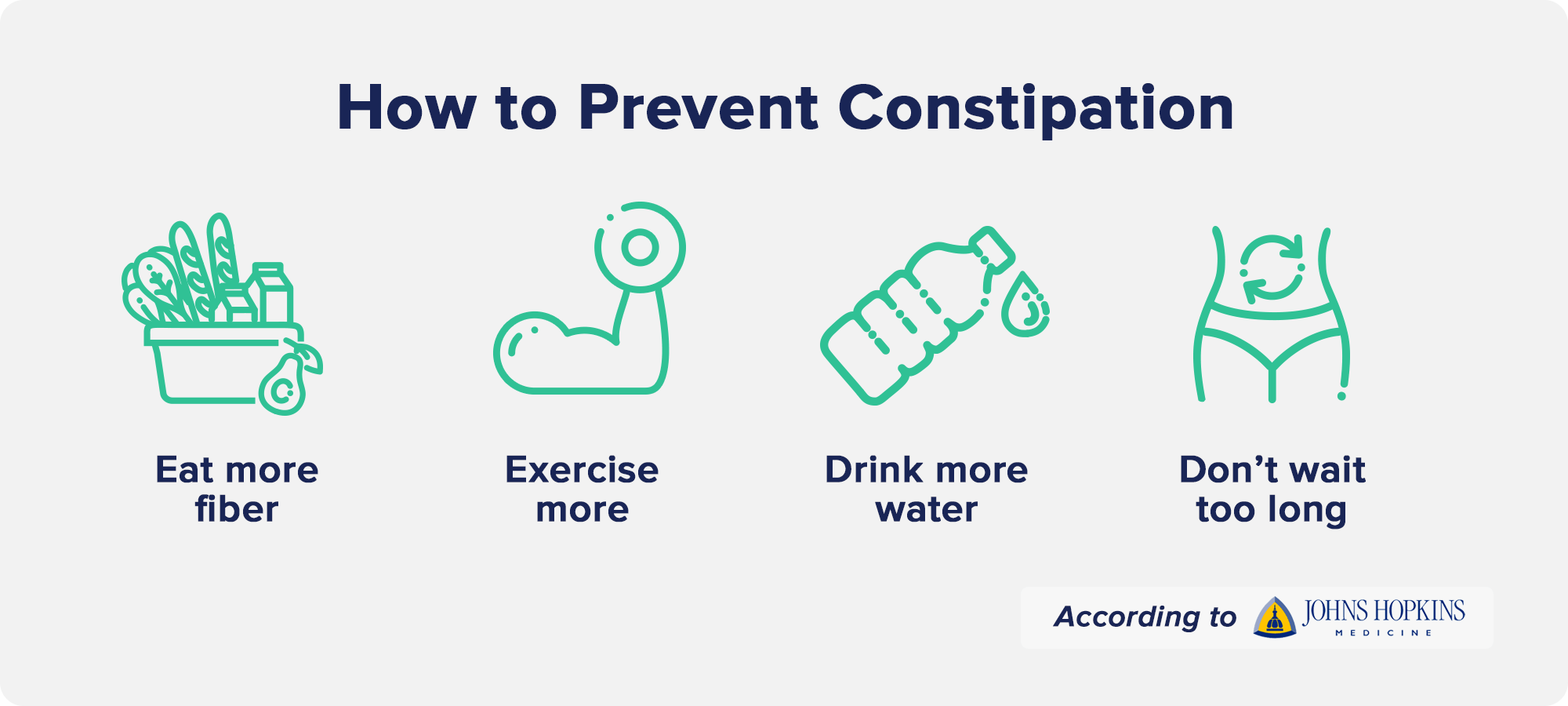
Because constipation is caused by and/or involves different mechanisms on a person-to-person basis, determining the best laxative for constipation is subjective.
In the most general sense, water and fiber are the most effective natural laxatives, but some people may require different solutions, such as stimulant laxatives for those with nerve issues.
Coffee, some teas, prune juice, aloe vera juice, and of course, water are a few examples of drinks that can soften stool for constipation relief.
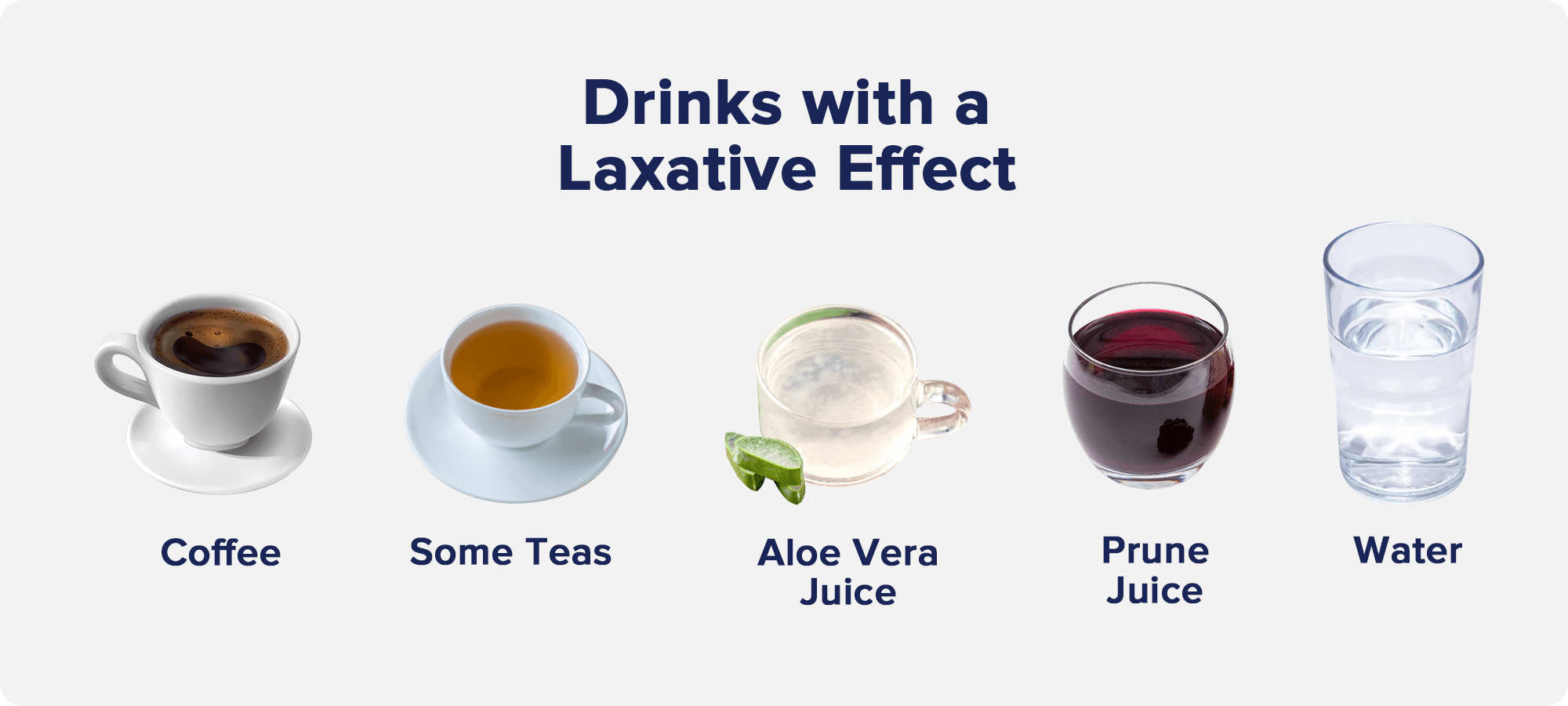
In addition to the constipation itself, a blocked bowel may cause intermittent abdominal pain (likened to cramps), lack of flatulence, bloating, and a decrease in appetite.
If the obstructed bowel is caused by or related to another condition, these signs and symptoms may or may not be different.
This Cleveland Clinic article explains that, in the majority of cases, constipation should not result in an ER visit.
This is because the symptoms don’t usually approach an extreme level of severity, and even without diligent self-treatment, the body can eventually resolve constipation in most cases.
However, if the constipation persists for a long time (more than a few days), and/or if you experience extreme pain, blood in the stool, or vomiting, a trip to the ER may be necessary.
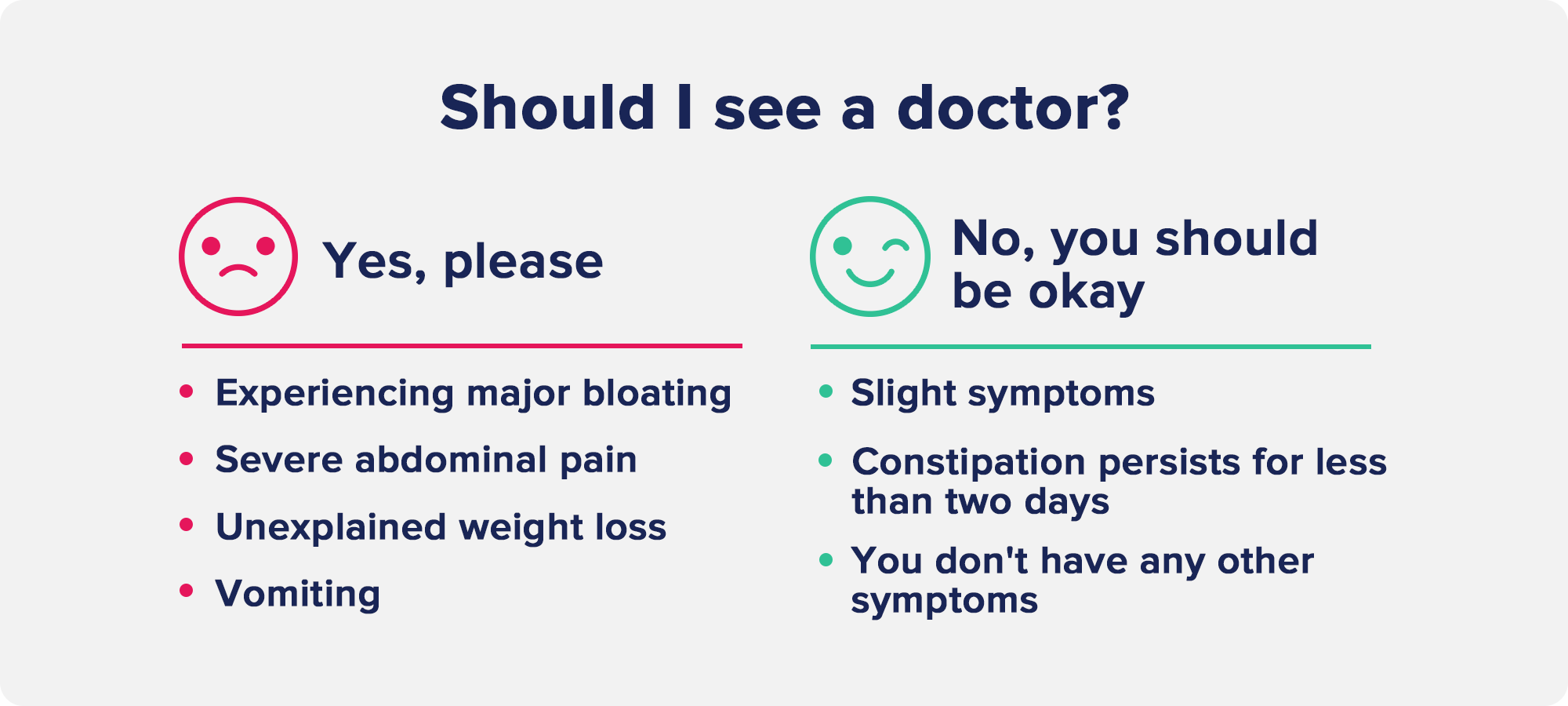
Constipation can be caused by several factors, but in many cases, natural laxatives that are rich in fiber, osmotic nutrients like magnesium, and/or probiotics (as well as water) can help you resolve the issue faster and more comfortably.
Fresh fruits and vegetables, seeds, legumes, fermented foods, and many more vegetarian- and vegan-friendly foods are included in the huge list of foods that can treat and/or prevent constipation.
Some forms of constipation require more nuanced solutions, like stimulating nerves that regulate muscles within your intestines, and some forms of constipation are related to underlying conditions.
Finally, by staying active and responding in a timely manner to the urge to use the restroom, you can help prevent constipation.